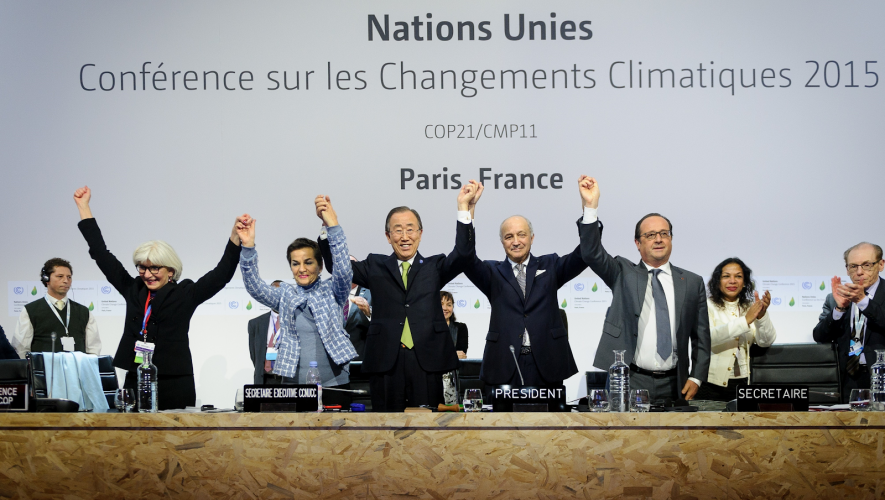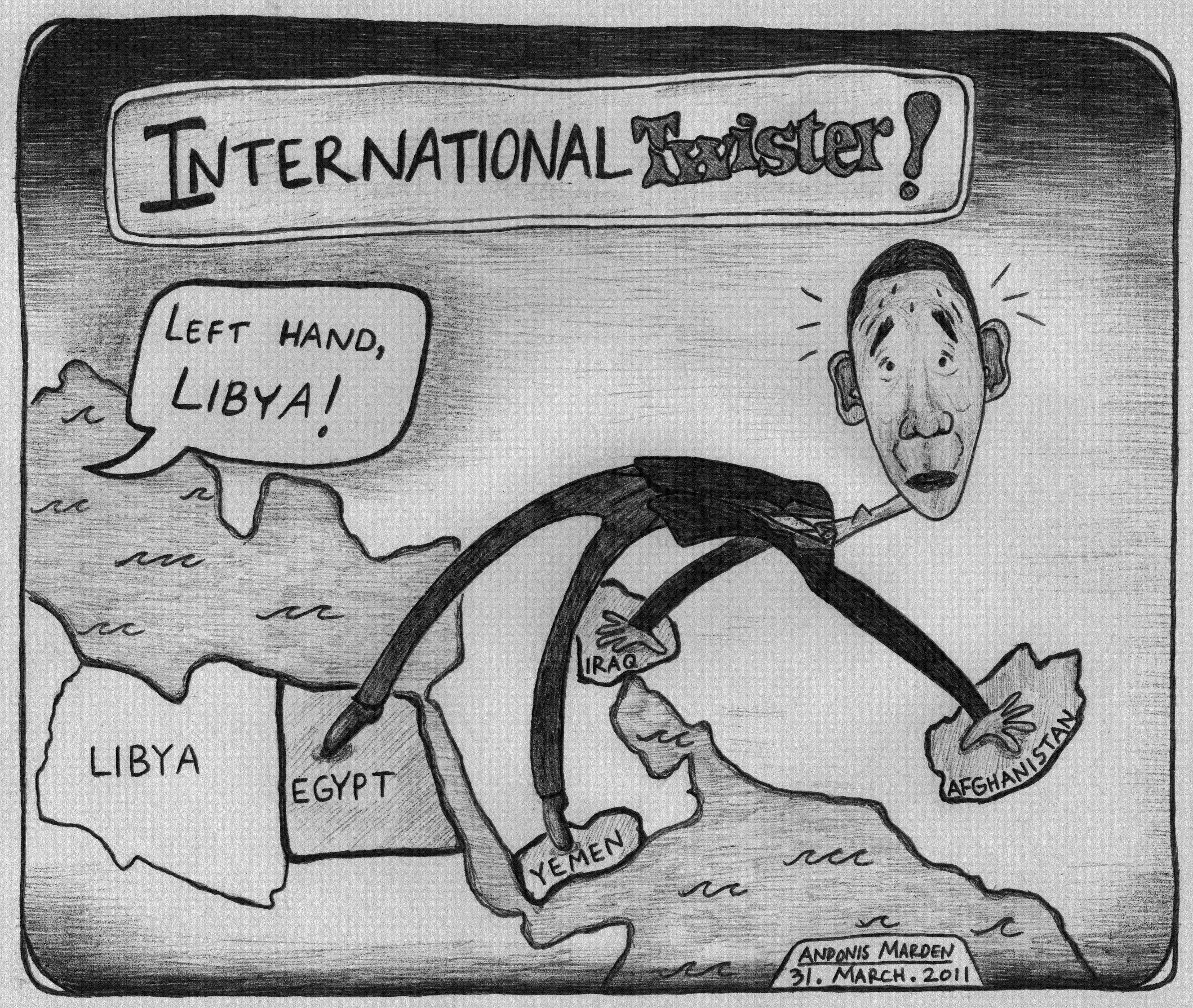“We must now agree on a binding review mechanism under international law, so that this century can credibly be called a century of decarbonization.”
–German Chancellor Angela Merkel, 2015 Paris Agreement negotiations
The time for climate action is long overdue. Humanity must employ universal, cooperative efforts to prevent irreversible damage to our planet.
The international community should create mechanisms to push developed countries toward a greener economy, and these countries should support developing ones in their transition. To do so, states should look to the Montreal Protocol as a diplomatic example.
The treaty serves as one of the first frameworks of global cooperation. It established interdisciplinary collaboration among scientists, diplomats, and politicians. It also set the precedent of including the private sector in climate conventions, since it is the main contributor to climate change and is massively affected by it.
Before the Montreal Protocol, the United Nations held the Framework Convention on Climate Change (UNFCCC) and created its Environment Program, setting the foundation for international cooperation. Since then, the program has held many conferences, but superpowers such as the United States and China have not committed to the resulting agreements. This lack of compromise, particularly from the two biggest emitters, threatens the success of climate change initiatives.
Take the US’ temporary withdrawal from the Paris Agreement—a treaty that aimed, among a wide range of goals, to prevent the mean global temperature from rising over two degrees Celsius by 2100. Each state established its own goals to reduce emissions, although its Nationally Determined Contribution (NDC) was nonbinding.
This compromise encouraged less cooperative states like the US and China to sign the agreement, since they are not obligated to meet their NDCs. Still, these states must set a pledge and attempt to follow through on it, pressuring them to act. Thus, the Paris Agreement illustrates the importance of voluntary, necessary compromise in climate change negotiations. By cooperating with resistant states, the international community reached a consensus that included almost every UN member state and, ultimately, international leadership and compromise is necessary for success.
Optimistic institutionalists highlight the numerous possibilities that multilateral platforms could provide. For instance, they hypothesize that a Climate 5 partnership between China, the EU, India, Brazil, and South Africa could facilitate cooperation between developed and developing countries. Experts of the Intergovernmental Panel on Climate Change also emphasize the importance of sustainable development coordination to support low-income countries, as they will also need to transition to greener practices once their socioeconomic growth stabilizes. We can already see some major economies move toward sustainability, such as the EU Green Deal and its Emissions Trade Market, or even more regional ones such as the Mediterranean Action Plan (Med Plan). All these initiatives aim to create the first carbon-free continent by 2050.
However, we are still missing collaboration from other actors. For example, the US must push for global regulations on carbon emissions and green technologies to minimize the initial adverse economic effects that come from transitioning to renewable energy. Now that the US has rejoined the Paris Agreement, it must use its soft power—a tool that seeks to culturally or economically influence states—to lead the international dialogue on climate change.
READ: Nutritious, Delicious, Auspicious: Cuisine, Power, and International Affairs
Consider climate financing, an important soft-power instrument for climate action. Developed countries provide financing to developing ones so that they can reach certain climate mitigation and adaptation goals. States typically contribute directly to other states or through multilateral efforts like the UNFCCC framework.
For instance, Denmark committed $38 million in earmarked climate finance in 2016, including $22 million to the UNFCCC’s Least Developed Countries Fund. Regional organizations are also taking action, as the EU created a new Adaptation Strategy that will scale its financing to better aid international climate resilience. On that note, the Association of Southeast Asian Nations (ASEAN) completed its $15 million effort to prevent peatland fires—the major source of smoke haze in the region—and create a regional network focused on sustainable peatland management.
The importance of climate financing emphasizes part of the overarching issue: international funding must be directed to more sustainable practices. The Green Climate Fund and the REDD+ network each focus on promoting sustainability.
As one of the first finance mechanisms for climate projects, the Green Climate Fund invests across four sectors—environment building; energy and industry; human security, livelihoods, and well-being; and land use, forests, and ecosystems. For example, the fund’s efforts in Laos promote alternative flood control solutions, moving away from a traditional focus on grey infrastructure—such as dams and concrete drainage—and toward protecting wetlands, forests, and agroecological systems. Through this ecosystem-based effort, the initiative hopes to build climate resilience and better manage flooding.
The REDD+ network also indirectly encourages sustainability through its efforts to reduce emissions in deforestation. The group helps finance Brazil’s Amazon Fund, which raises donations for nonreimbursable investments in efforts to combat deforestation and promote sustainability in the Brazilian Amazon. When Brazil takes climate action or achieves certain goals, the fund rewards the country with additional resources that can be applied to any national issue. Former UN Secretary-General Ban Ki-moon noted that the effort is one of “the most impressive climate change mitigation actions of the past decades.”
A transformation to a greener economy or a circular economic model—which aims to eliminate waste and natural resource exploitation—allows nations to keep on their development track through approaches that aren’t as detrimental to the environment.
International environmental regimes can produce convergent policies that are applied at the state level, such as the UN C40—a network of megacities committed to addressing climate change. These legal regimes can also drive us, humanity, to succeed by encouraging thorough cooperation at the economic level.
For instance, Norway is one the global leaders on climate finance, following good-faith diplomacy combined with significant economic incentives. Suppose major rising economies such as China got involved in this new financing mechanism. The entire climate finance system could greatly benefit from the involvement of economically massive, influential powers. China could expand Norway’s work, given the growth of its Belt and Road Project—a global infrastructure development program that includes nearly seventy countries and international organizations. Moreover, China’s involvement would illustrate the importance of diplomacy to reach agreements among states with different ideologies.
The world must come together to conduct environmental diplomacy because climate change is an existential threat. We have only one planet, and we can not afford to destroy it any further. We should also commemorate outstanding diplomatic efforts, like when US diplomats worked with China to get the country to join the Multilateral Fund—a platform dedicated to reversing the deterioration of the ozone layer. Likewise, the Sustainable Development Goals illustrate a more recent push for environmental diplomacy and global governance. With the Paris Agreement, these goals are the common “grundnorm” to combat climate change.
Our objectives must direct us to legally binding commitments. From rising sea levels to changes in biosphere integrity, climate problems already affect over seven billion people globally. As climate activist Greta Thunberg points out, all we have to do is wake up and change.



